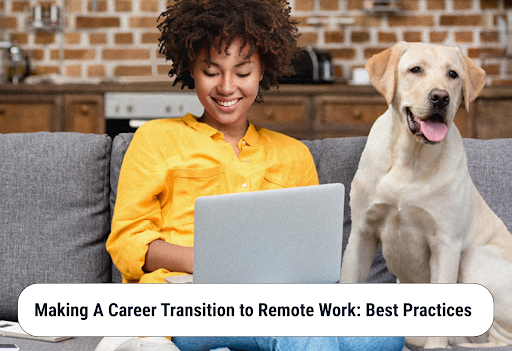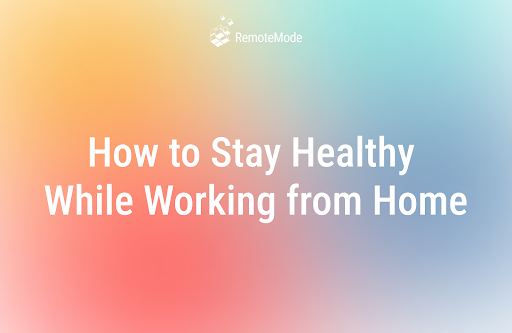Making A Career Transition to Remote Work: Best Practices

If you're considering making the switch from an office job to remote work, you may be feeling a mixture of excitement and trepidation. On the one hand, you're eager to enjoy the benefits of working from home, such as greater flexibility and fewer distractions. But on the other hand, you may be worried about losing the structure and support of an office environment.
Luckily, there are some things you can do to ease the transition. From researching remote jobs that align with your interests to building your professional network, there are many ways to create a sustainable remote career. Making the career switch to remote work doesn't have to be scary. You can set yourself up for success with a little preparation and guidance on best practices.
Make a Plan To Stay Engaged
Working remotely has its perks: you can take work with you wherever you go, there are no office distractions, and you have greater control over your schedule. However, remote work also demands a lot of accountability from workers. Because you're not in an office setting, it's easy to become disengaged from your work. And without the structure of an office environment, it can be hard to stay on track and meet deadlines. That's why it's important not to idealize remote work. Before transitioning to a remote career, it's a good idea to sit down and make a realistic plan for how you'll stay engaged and accountable. By taking the time to set some ground rules for yourself, you can make sure that working remotely is a successful and enjoyable experience.
Research Companies Offering Remote Work Opportunities
When transitioning your career to remote work, it is important to do your research on companies offering remote work opportunities. There are various factors to consider when choosing a remote work company, such as the company's culture, job satisfaction among employees, and the quality of the work. In addition, it's important to ensure the company you choose offers the type of work you are looking for. By thoroughly researching companies offering remote work opportunities, you can be sure to find a position that is right for you.
Get Clarity on the Structure of the Remote Job
When applying for a remote job, asking the right questions in the interview process is critical. First, you'll want to find out what the company's remote policy looks like. Are employees expected to be online during specific hours? Are there any mandatory meetups? Understanding the company's expectations will help you determine if the job is a good fit for your needs. Next, you'll want to ask about the team's work style. Some teams work asynchronously, meaning everyone works independently and at their own pace. Others may have more of a traditional structure, with tasks assigned and deadlines to be met. Knowing how the team operates will help you understand what to expect regarding collaboration and communication. Asking these questions will give you a better sense of whether or not the job is a good fit for you.
Adapt to Remote Company Culture
When joining a new company, it can be difficult to adjust to the culture, especially if you are onboarding remotely. One way to help you feel more comfortable socializing with your colleagues -- getting to know them and learning about their interests. You can also read up on the company's values and mission statement to internalize the culture. This also includes getting to know best practices for the software and tools used by your team. If you have any questions, don't hesitate to ask your supervisor or another colleague — it's important not to hold back. Staying engaged with your team's operations is essential for absorbing the company culture.
Build a Robust Routine
One of the benefits of remote work is that you can create your schedule. But this can also be one of the challenges, as it's easy to become overwhelmed with all the possibilities in your home. To combat this, sit down and map out a plan for your days and weeks, including time for work, breaks, and personal time. In addition, one of the key ingredients to success as a remote worker is having a designated space in your home where you can focus on your work without distractions. By zeroing in on the routine that works well for you, you can make a career transition to working remotely more sustainable.
Manage Your Mental Health Long-Term
Taking care of your mental health during your career transition into remote work is crucial. One way to do this is to prioritize social time with your colleagues and family. Feeling isolated from remote work is a common issue. Try to schedule regular video chats or coffee dates with your friends and family members. This habit will help you stay connected and reduce feelings of isolation. Another thing to remember is that remote work can be more flexible than office jobs. Use this flexibility to your advantage by creating a schedule that works for you. If you know you need some time to decompress after work, build in some buffer time between work and your personal life. This practice will help you avoid burnout and maintain a healthy work-life balance.
Making a career transition to remote work can be an exciting change, but it's important to take the time to plan ahead so that you can stay engaged and successful in your new role. By developing a robust plan, you'll be well on your way to enjoying a successful career transition into remote work.
Take the first step to your new remote career!






